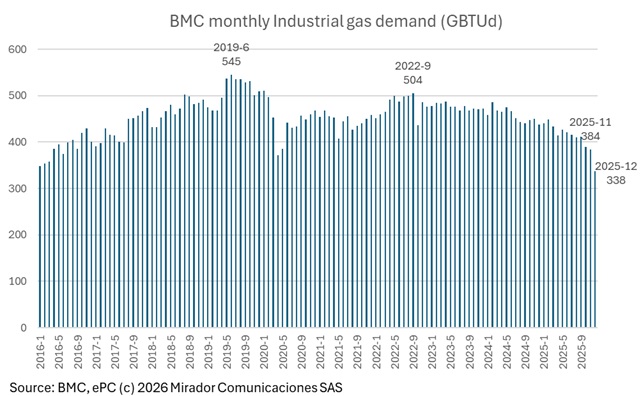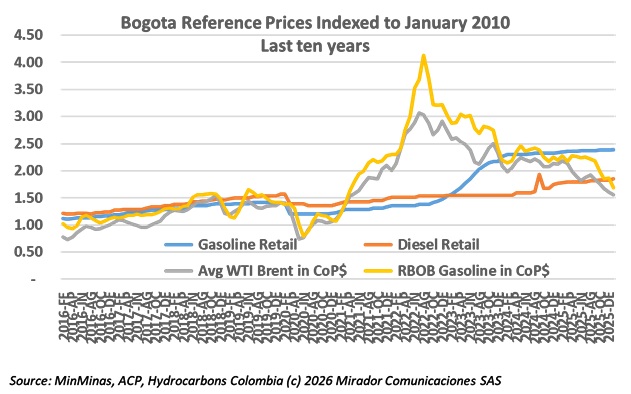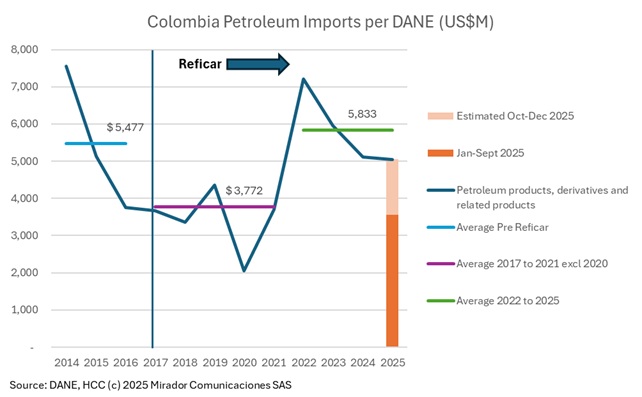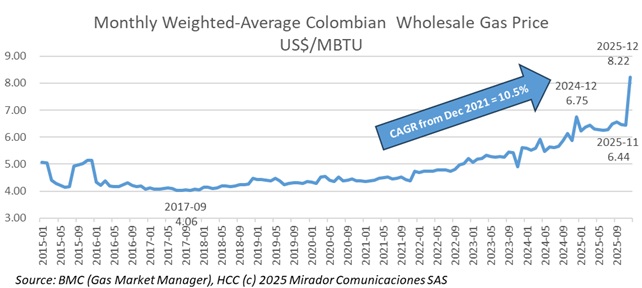Colombia’s Ministry of Mines and Energy issued Decree 1428 of 2025, removing private, diplomatic, and official vehicles from diesel price subsidies supported by the Fuel Price Stabilization Fund (FEPC).

Colombia’s industrial natural gas demand fell 23.7% between November and December 2025 following sharp price increases triggered by the expiration of supply contracts on November 30.
Colombia’s 2025 inflation closed at 5.10%, with natural gas and vehicle fuels representing the largest increases within the energy basket, while electricity rates declined.
Colombia will confront a challenging oil market environment in 2026 characterized by lower prices, oversupply, and excess inventories, according to analysis from Corredores Davivienda.

Colombia began 2026 with new fuel price increases despite declining Brent crude and dollar values, highlighting how Petro government policy keeps domestic gasoline more expensive than in the United States.
Despite the dramatic U.S. military intervention in Venezuela and Nicolás Maduro’s capture, global oil markets have shown minimal reaction, revealing that oversupply concerns far outweigh geopolitical volatility from a country holding the world’s largest crude reserves.
While IATA Director General Willie Walsh warned that disappointing progress in Sustainable Aviation Fuel (SAF) production threatens the airline industry’s environmental goals, Colombia emerges as a potentially crucial player to address the global supply shortage.

From the beginning President Gustavo Petro’s government seemed determined that Colombia would lose its self-sufficiency in fossil fuels. It appears to be accomplishing that goal, certainly in gas, and maybe in liquids as well.

The Colombian government, through the Ministry of Mines and Energy, announced an urgent package of measures to stabilize natural gas prices and protect residential users, small businesses, taxi drivers, and productive sectors dependent on this service.